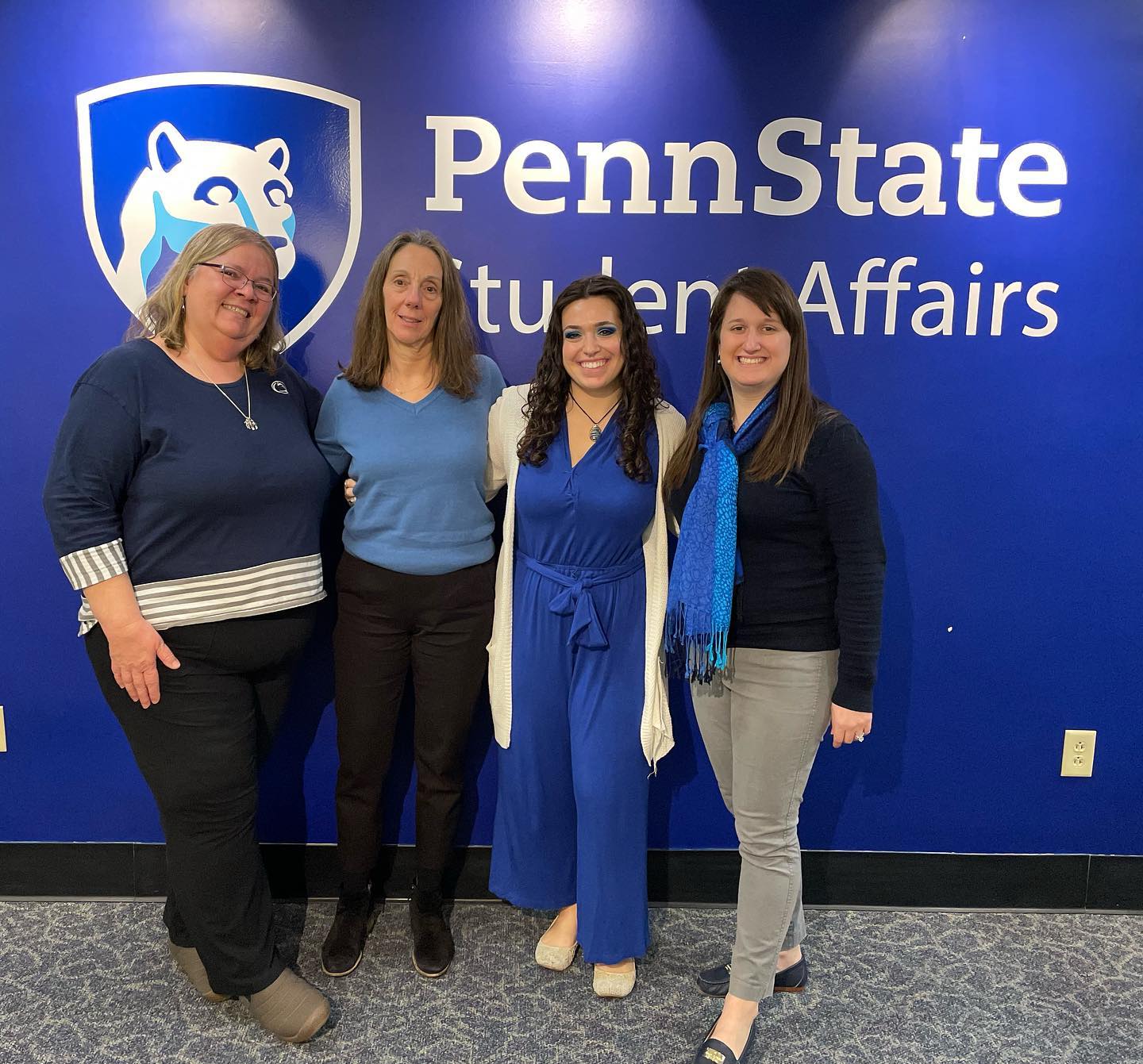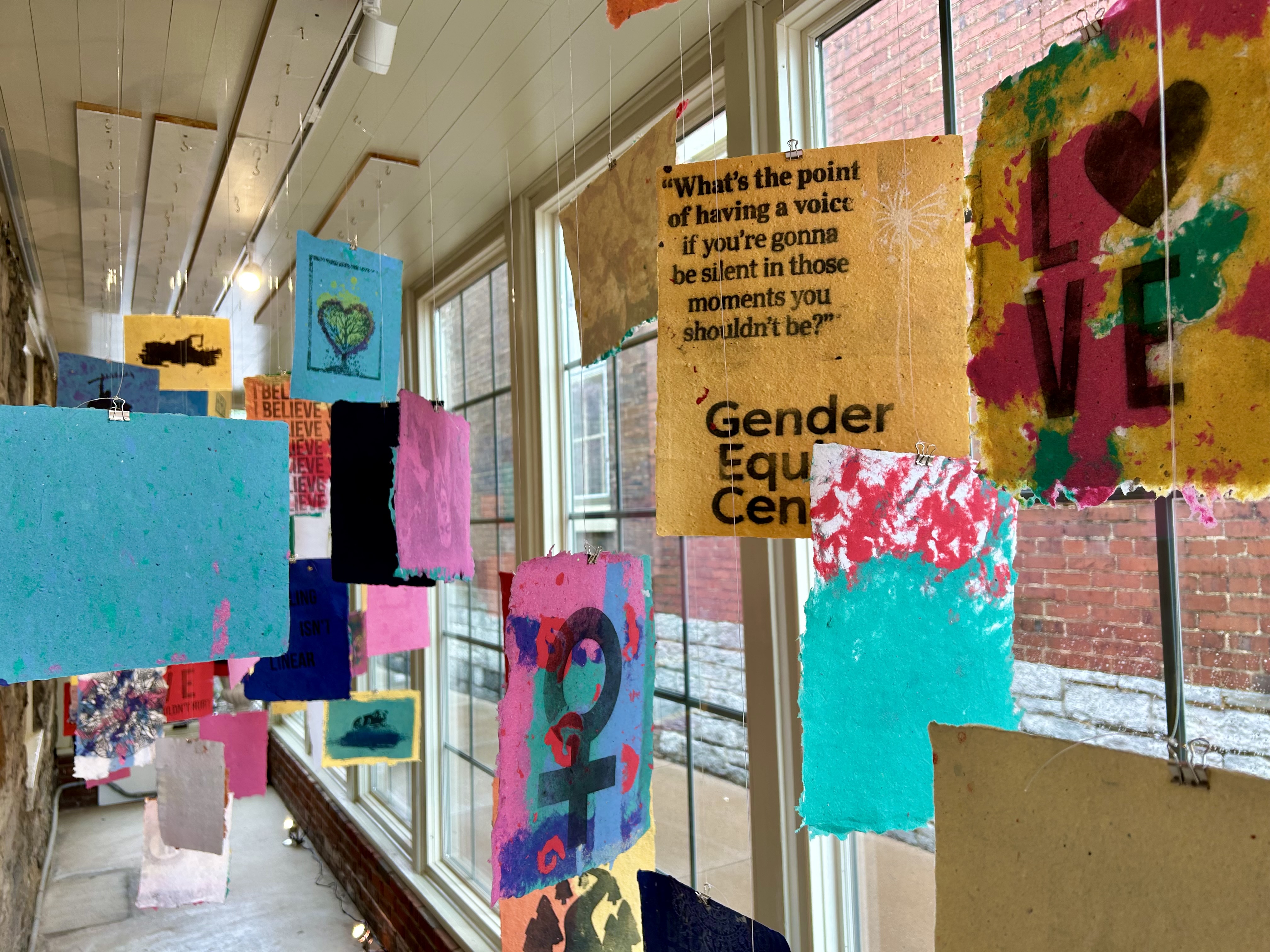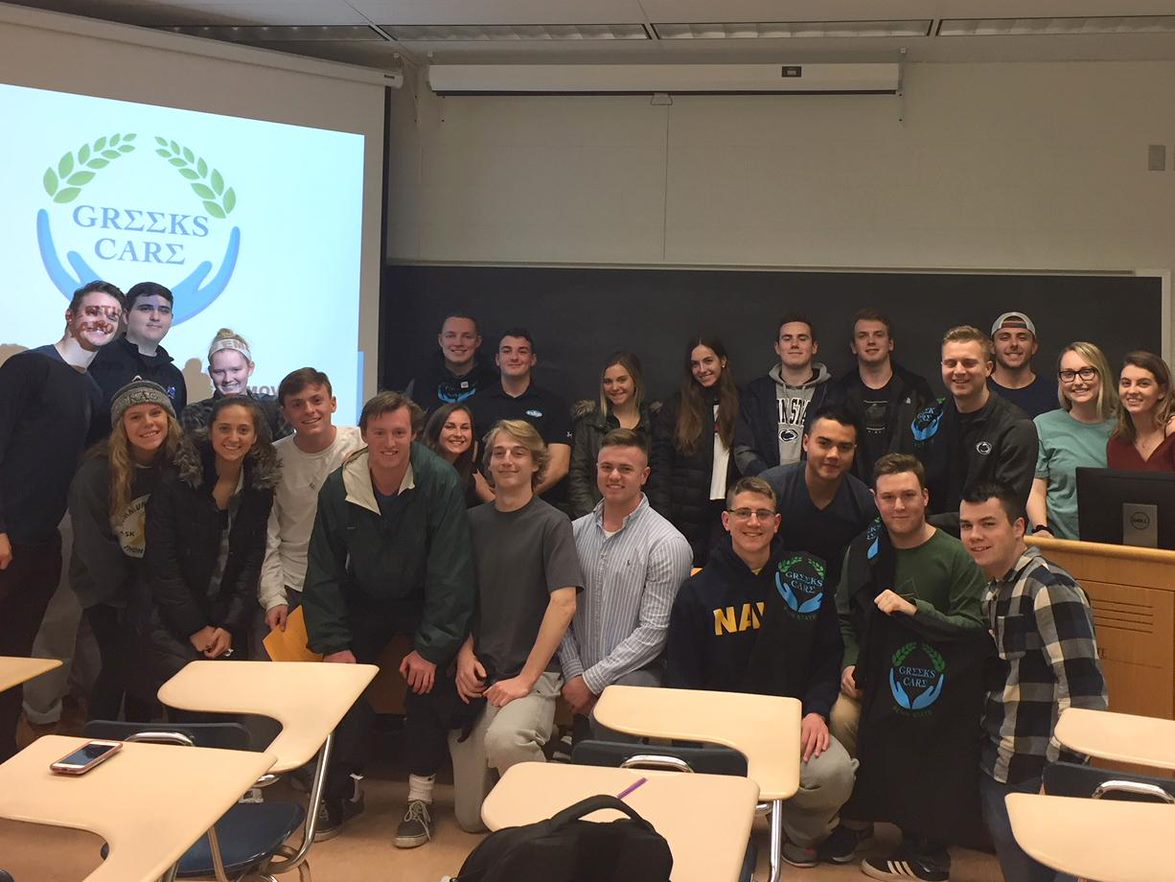Annual Report

Gender Equity Center Annual Report
2022-2023
Highlights of the Past Year
During the 2022-2023 year, capacity building continued with enhancing and building out our prevention education efforts. Our office absorbed the former Stand for State program, which has been reintegrated into GenEq programming as part of It’s On Us Penn State. To support these changes, our Assistant Director was promoted to Associate Director for Prevention Education, and we hired a Program Coordinator for Men's Engagement and Peer Education. We also hired student staff to help us do this work, which has proven to be invaluable in our education and outreach.
With the growth of our prevention and education team, the Men Against Violence program is being revived and a separate new program will serve as its counterpart, called Flip the Script with Enhanced Assess, Acknowledge, Act (EAAA). Flip the Script with EAAA is a curriculum dedicated to changing the narrative on gender roles and expectations, including discussions of sex, sexuality and feminist self-defense. Further, the new prevention education team allows for greater research, development, and assessment of the center’s offerings.

Over the 2022-2023 year, we also implemented brand-new programs and trainings for faculty, staff, and students. As an example, we piloted the “Gender Equity Center Ambassador Program,” which is designed to educate staff and faculty on best practices to support students in crisis, teach them how to initiate conversations with students they suspect have experienced violence, and show them how to connect students with vital resources. Three hundred Nineteen staff and faculty participated in the training this year and are now Gender Equity Center Ambassadors.
On the student side, as an inaugural experience, we took a bus of students to Washington, DC to learn about Gender Equity work in action. Called "Explore and Connect," this was an opportunity for students to explore possible careers in the field of violence prevention, meet leaders doing this work, and connect with alumni in the geographically related area.
To better support our increased staffing and programming models, one of the biggest changes this past year was moving into a new physical space. Previously the Gender Equity Center was in a small, cramped office space that had insufficient space for the staff, no room for student organizations to work, and lacked adequate privacy for students meeting with advocates. In November 2022, we moved from 204 Boucke to 222U Boucke. We now have a warm and spacious welcome area, a survivor lounge, a designated space for student staff, and private offices for students to meet with their advocate.
For direct services, we have three professional staff who provide advocacy and crisis intervention services and meet with students one-on-one. And even though two of these staff members do this in conjunction with multiple other responsibilities, we served a significantly greater number of students this year, compared to last year. Additionally, we saw a sizeable increase in the number of students who met with our staff for six or more sessions, increasing to 23% this year, compared to 6% last year.
Students Served
The total number of individual students served through various one-on-one meetings, advocacy, and support sessions was 235 students this year. Of this number, 82 students met with staff for two to five sessions, and 54 of them met with staff for six or more sessions. During these sessions students are supported, validated, and heard, safety planning is done, options and systems are explained, resources are considered, and advising is done. And, for those students who are meeting with their advocates for multiple sessions, they are likely going through a formal investigation process or criminal investigation and need enhanced, ongoing support, and advocacy.
Twenty-six of these students were from campuses other than University Park and 222 of them identified as victim survivors, with the remaining identifying as friends or witnesses.

The types of interpersonal violence experienced by the above noted students varied with the most students experiencing sexual violence (64), sexual harassment (16), dating violence (33), gender harassment (10) and stalking (9), and (8) who experienced other incidents. Further, 199 of the students who we served identified as women, 27 identified as men, and 9 identified as gender diverse. Additionally, 199 were undergraduates, 27 were graduate students, 6 were faculty, and 3 were staff. Lastly, the numbers of those served increased tremendously compared to the previous year. In school year 2021-2022, we served 172 in total, whereas in school year 2022-2023, we served 235 students (a 37% increase). Further, GenEq advocates served as advisors for victim survivors in 42 individual sexual misconduct investigations as compared to 32 the previous year. The time commitment for serving as an advisor can be from 10 to 15 hours or more for each student.
Educational Programs and Peer Education
Over the course of the year, our education team taught 317 classes which reached 8490 attendees. These classes included topics on sexual violence, relationship violence, sexual harassment, bias and bystander intervention, supporting survivors, and more. In addition, 206 students (equal to 1099 attendee hours) participated in our 6-week long Greeks Care Peer Educational program, which was a reduction from 320 the prior year. And, through the It’s On Us Peer Education workshops, 12 sessions were conducted, reaching 97 students, a reduction compared to 18 sessions for 130 students the prior year. This was the second year of the It’s On Us Peer Education workshops. We surmise that numbers were higher during the first year due to more intentional marketing being done and through some paid channels, which was unable to be done in the second year. Similarly, outreach efforts for Greeks Care were less this year, possibly due to challenges with vacant positions in the Office of Fraternity and Sorority Life, our partner office for Greeks Care. We plan to continue to grow both programs through cost effective marketing and more outreach efforts.
Awareness Programs, Keynote Speakers, and Events
In addition to the above workshops, the Center conducted 110 separate programs reaching 6663 attendees, welcomed ten expert keynote speakers, and partnered and collaborated with 40 different offices and organizations to provide evidence based and best practice inspired programming to students.

Some of these partners included the Rock Ethics Institute, University Park Undergraduate Association, Centre Safe, IFC, Penn State Intercollegiate Athletics for Student Athlete Welfare and Development, and Schreyer Honor College.
Additional Information
The above is a summary of our annual report for year-end June 30, 2023. If you would like to see the full report, please contact the Gender Equity Center at genderequity@psu.edu so one can be emailed to you.


